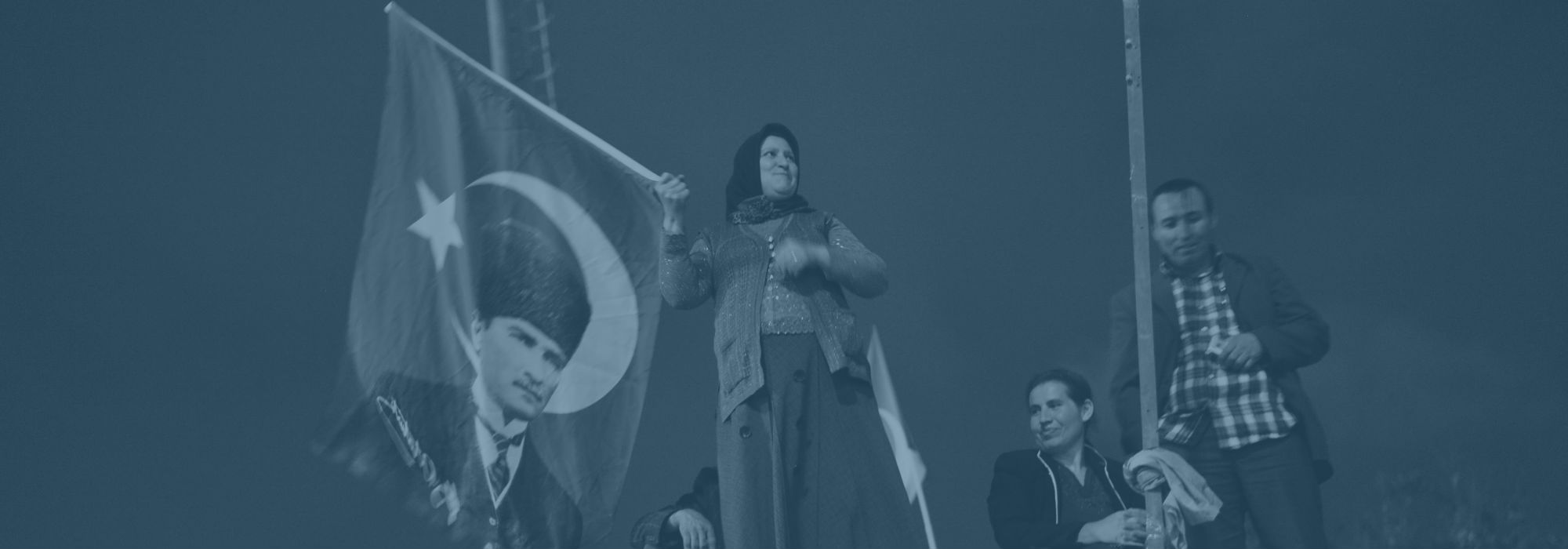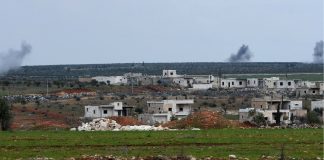By Jacob L. Shapiro
Having safely landed in Istanbul after what was reportedly a harrowing journey in which Turkish President Recep Tayyip Erdoğan’s plane was targeted by coup-supporting F-16 fighter jets, Erdoğan did a curious thing. He accused Fethullah Gülen and Gülenist supporters of being behind the coup.
This was curious not because of the accusation itself, but because it was among a number of examples from the past few days that shows how antiquated it is to speak of Turkish politics strictly in terms of a divide between religion and secularism. Erdoğan’s Justice and Development Party (AKP) and Gülen’s supporters were once allies and had similar views on the role Islam should play in the governing and daily life of the Turkish Republic. Erdoğan used the Gülenists to try and solidify his control over the army.
Erdoğan is now using the parts of the state loyal to him to tear down the Gülenist “parallel state.” If it were a black and white issue, this type of maneuvering would not be possible. AKP and the Gülen movement are not rival Islamist camps; rather both are competing for the intellectual leadership of post-Kemalist Turkish secularism, which allows religion a role in civil society.
Consider also that, while the coup attempt was underway, it was disavowed by leaders of the Republican People’s Party (CHP), the party of Mustafa Kemal Atatürk (the founder of Turkey). This despite the fact that the coup plotters explicitly claimed in their statement to the country that they wanted to protect secularism from Erdoğan. The next day, AKP and the leaders of CHP, the Nationalist Movement Party (MHP) and the Kurdish Peoples’ Democratic Party (HDP) joined together at an extraordinary session of the parliament’s general assembly to express their support for democracy and Erdoğan’s leadership.
In addition, the military, the supposed bastion of strict secularism in Turkey, mostly sat on the sidelines during the coup attempt. True, a significant faction of the military tried to engineer a coup and to remove Erdoğan from power. But Erdoğan wouldn’t have survived the night if Turkey’s First Army Commander Ümit Dündar didn’t declare his loyalty. Erdoğan also had the support of many other commanders and generals who refused to join the coup and secular protesters who joined demonstrations against it. We need a better framework to understand what we saw in Turkey over the weekend and to begin to understand how this will shape Turkey’s future.
For that, we must return briefly to the beginning. When Atatürk helped found the Turkish Republic, he was doing so in the wake of the collapse of the Ottoman Empire. The Allies after World War I carved up the Ottoman holdings, codifying the Ottomans’ embarrassment in the Treaty of Sèvres.
The end of World War I was in effect the end of European multiethnic empires. Nationalism had already been rising as a political force for a century or perhaps longer, but World War I put the nail in the coffin. The Ottomans, the Austro-Hungarians and the Russian Czars were all broken up. The writing was also on the wall for British and French colonial holdings with the creation of the League of Nations and the idea of Mandates, which dictated that these former empires were merely holding on to these territories until they were “mature” enough for national self-determination (or at least so the logic went).
It was in this world that Atatürk rose to become Turkey’s first president. Atatürk saw what a powerful force nationalism was. He saw how advanced the Western European nations had become compared to the once-mighty Ottomans, and how beaten down his country was after the loss of the war. He blamed the demise of the empire in part on the religious leadership, which had gained more power in the 17th and 18th centuries at the expense of the sultans. And so, Atatürk abolished the sultanate, discarded his status as an Ottoman subject and created the modern Turkish Republic. He built the state around a cadre of secularized elites centered in Istanbul and banished religion from the public sphere.
When trying to understand Turkey today, it is important to keep this history in mind. It is too simple to only state that Erdoğan and the AKP are Islamists seeking to replace Kemalism with a form of political Islam and that the military is the bastion of Turkish secularism and will defend it no matter what the constitution says. On one level, AKP’s rise was enabled by its desire to see Islam expressed in the public sphere. But religion is not the sole or even decisive reason for AKP’s rise to a position of power that previous religious parties never reached.
In the 1980s, economic and political reforms implemented by the Turkish government brought economic benefits to Anatolia, which even during Ottoman times was something of a backwater and an afterthought for the government. The influx of capital and industry into Anatolia created a new class of Turkish citizens, who had grown up more conservative and religious than the elites in Istanbul, but preferred a more laissez-faire style of governance when it came to the economy. This, combined with the influx of many Turkish migrants from their rural homes to rapidly industrializing cities with jobs and new opportunities, brought Atatürk’s center into contact with the Anatolian periphery in a way that had never happened before. This changed Turkish politics permanently.
It did not, however, change the overall Turkish desire for a secular state. In 2007, a survey by the Turkish Economic and Social Studies Foundation showed that two-third of Turks identified as religious and only a third identified as secular. A 2015 Pew survey, however, asked respondents in Muslims countries whether they believe Shariah law should be official law. Pew found that only 12 percent of Muslims in Turkey favor this.
To understand Turkey today, you have to recognize that Turks by and large are proud of their religion (whatever it means to them on an individual basis) and also deeply value the secular principles (if not their precise applications) on which their country was established and has prospered in the last century.
This is hard for Westerners to understand because the categorization of Erdoğan as an Islamist and the army as secular nationalists is a neat and tidy way to differentiate the two. The only problem is that, as this past weekend showed, it’s an inaccurate way of conceptualizing what is going on in Turkey right now.
For Turkey to survive its defeat in World War I, the country was set up with a distinct power center in Istanbul and a weak, poor periphery in Anatolia that was underrepresented. As that rift heals and as the Turkish nation binds itself together, Turkey will become more sure of itself and more powerful in the long-term. In the short-term, I have no doubt it will continue to look chaotic and at times violent. Whether Turkey will remain a democracy or Erdoğan will remain in control, I’m not sure – that is in the end up to the Turks. But these are the dynamics that are at play. We will explain the strategic consequences in Thursday’s Deep Dive on Turkish foreign policy imperatives in the wake of the failed coup.
In the interim, it is important not to reduce what’s happening in Turkey to a religious-secular fight or to forget that the divide, though exaggerated, still exists. Turkey cannot forget this divide any more than the French can forget the Tennis Court Oath or than the U.S. can forgot the compromises its Founders made, which allowed slavery to exist until 1865. We wouldn’t, however, use either of those frames as the sole lens through which to view developments in either country today and so we shouldn’t reduce the internal conflict raging in Turkey to a simple conflict between reason and revelation. It is about power and who will hold it. The rest is window dressing.






